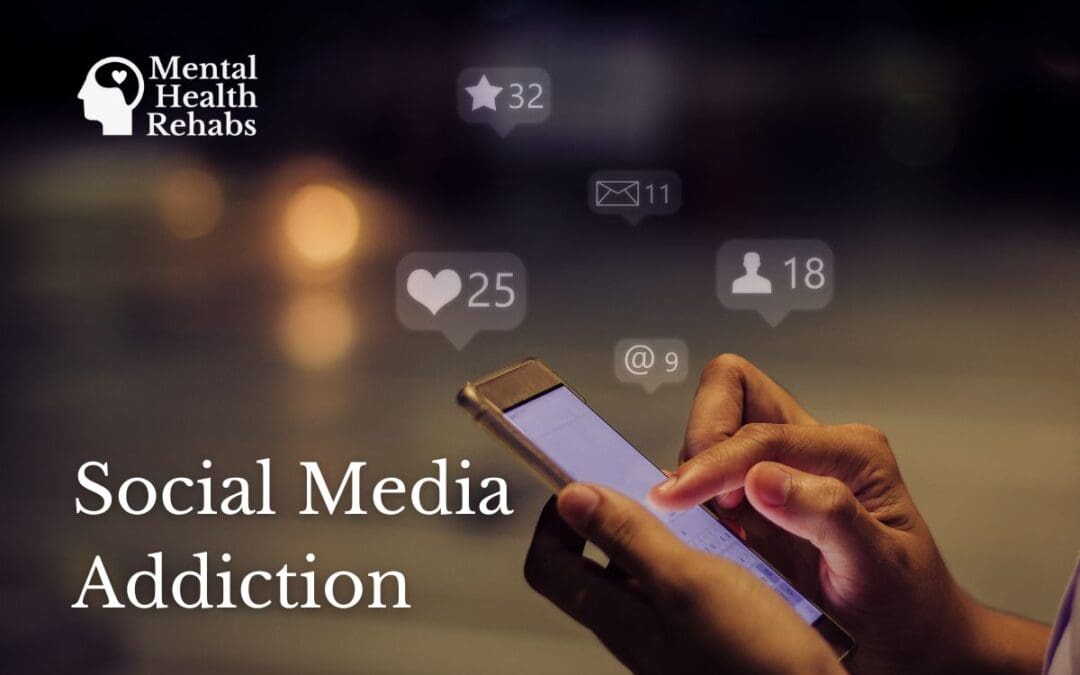Who doesn’t love the buzz of a notification that someone just liked their photo, agrees with their comment, or finds their content worth sharing? Social media can make us feel good and foster a sense of community while encouraging self-expression and creativity. As with everything in life, too much of a good thing can be harmful. That’s what we’re seeing over 210 million people around the world are considered to be addicted to social media.
Is social media addiction real?
Yes, social media addiction, also known as social media use disorder or problematic social media use, is a real phenomenon. It’s characterized as a compulsive need to check accounts and engage with content even when it interferes with a person’s daily activities, relationships, or work.
Although not technically listed in the Diagnostic and Statistical Manual of Mental Disorders, Fifth Edition (DSM-5) as an official disorder, social media addiction is recognized by mental health professionals and researchers as a type of behavioral addiction, similar to gambling or shopping addiction. This, however, may change soon.
Until very recently, the DSM-5’s chapter on addictions was limited to substance abuse disorders–nine of them, to be exact: alcohol, caffeine; cannabis; hallucinogens; inhalants; opioids; sedatives, hypnotics, and anxiolytics; stimulants; and tobacco. It has since been expanded to include gambling disorder, which is currently the only behavioral addiction included in this definitive guide.
Scientists and researchers from organizations like the WHO argue that other behavior disorders should be included and are working to uncover the neurobiological mechanisms rooted in other behavioral disorders like sex addiction, shopping addiction, and Internet addiction. Their goal is to eventually obtain enough scientific proof to have these disorders included in the DSM as well. Should this come to pass, it’s likely that social media addiction and gaming addiction, which are closely related to internet addiction, will eventually be recognized as official disorders too.
Why is social media addictive?
Social media platforms are designed to be engaging and rewarding. Nowadays, they use highly sophisticated algorithms to tailor content to each user and keep them scrolling and engaged. Other techniques such as infinite scrolling and notifications also keeps users coming back and locked in for hours at a time.
The ability to create content and interact with other users can create a powerful sense of pleasure and satisfaction in the brain when individuals receive positive feedback from likes, comments, and other social interactions.
As a result, social media increases dopamine, a neurochemical deeply intertwined with the reward center. Our brains are wired to want to repeat the actions that made it feel good and dopamine plays a leading role in the development of substance-based addictions.
Side Effects of Social Media Addiction
Research has found that excessive social media use can be associated with a range of negative mental health outcomes, including increased feelings of loneliness, anxiety, and depression. This risk is heightened the more time a person spends on social media. A 2019 study found that young adults who used social media for more than two hours per day were more likely to report symptoms of anxiety and depression than those who used it less.
Other side effects of social media addiction may include:
- Reduced attention span
- Disrupted sleep patterns
- Decreased productivity
It’s also possible a person with a social media addiction may experience withdrawal symptoms when they are unable to access social media. These symptoms may include irritability, restlessness, and mood swings.
Treating Social Media Addiction
Individuals who struggle with social media addiction may benefit from talking to a mental health professional for help. Cognitive-behavioral therapy is a highly effective treatment method for social media addiction that can promote the development of healthy habits and coping strategies to manage social media use.
Whether you have social media addiction or are just on your apps more than you need to be, the good news is there are ways you can help decrease your overall use. Consider the following tips to help you achieve a healthier balance with social media:
- Delete social media apps from your smartphone
- Adjust notification settings on each social media app to turn them off
- Leave your phone, tablet, and computer out of the bedroom
- Set a timer when you do use social media (slowly taper down your usage over time)
It’s important to use social media in a healthy and balanced way to promote positive mental health outcomes. This may involve setting boundaries around social media use, seeking professional help if needed, and focusing on building offline connections and relationships.

